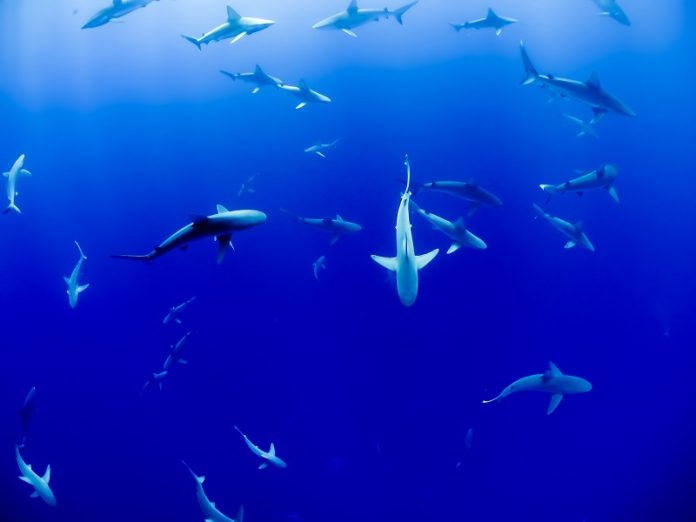
Ever wondered how deep a shark would go to find its dinner?
A new study reveals that silvertip sharks, which love the warm waters near coral reefs, can dive astonishingly deep, up to 750 meters (almost half a mile) below the ocean surface, in search of food.
The research team, led by Dr. David Tickler from UWA’s Ocean Institute, tagged seven of these sharks to track their movements.
Usually, silvertip sharks like to hang out in warm, shallow waters near coral reefs. These areas are full of oxygen, which makes it easy for them to breathe.
However, the study found that these sharks also make regular trips to colder and darker waters deep down.
So, why do they leave their comfy, warm zones? According to Dr. Tickler, the answer lies in their eating habits.
Sharks are known for their keen senses, and it turns out, they are very aware of the light levels in the ocean.
They’re not just responding to the light itself; they’re actually following their food! Every night, billions of small animals and fish swim up to the ocean’s surface to munch on phytoplankton (tiny plants that float in the water). When the sun comes up, these small creatures head back down to the dark depths, where they feel safer from predators.
Silvertip sharks seem to have figured out this daily rhythm. By diving deep during the daytime, they can follow these critters and have a feast. They can also hunt animals that never come up to the surface at all.
The study observed a unique pattern in how these sharks dive. They go down quickly, spend a little time at the depth where they find their food, and then shoot back up to the surface.
Dr. Tickler points out that this pattern shows how closely the sharks are connected to the specific structure of their underwater habitat. And that’s a concern because of climate change.
Climate change is affecting the world’s oceans in many ways, including changes in water temperature and oxygen levels. This could make it harder for sharks to find the right places to live and hunt.
Professor Jessica Meeuwig, another expert involved in the study, adds that these changes could also make sharks more vulnerable to fishing. As their ideal deep-water spots become less habitable, they might have to stick to shallower areas, making it easier for fishermen to catch them.
Both experts agree that we need to take action to protect these sharks from the double threat of climate change and overfishing.
While it could take a long time to slow down climate change, there’s something we can do right now to help: create protected marine parks where fishing is not allowed.
So, the next time you think about sharks, remember that they’re not just simple predators lurking near the surface; they’re complex creatures that follow unique patterns and rhythms in the ocean.
And just like us, they’re feeling the effects of a changing world.
Follow us on Twitter for more articles about this topic.
Source: University of Western Australia.



